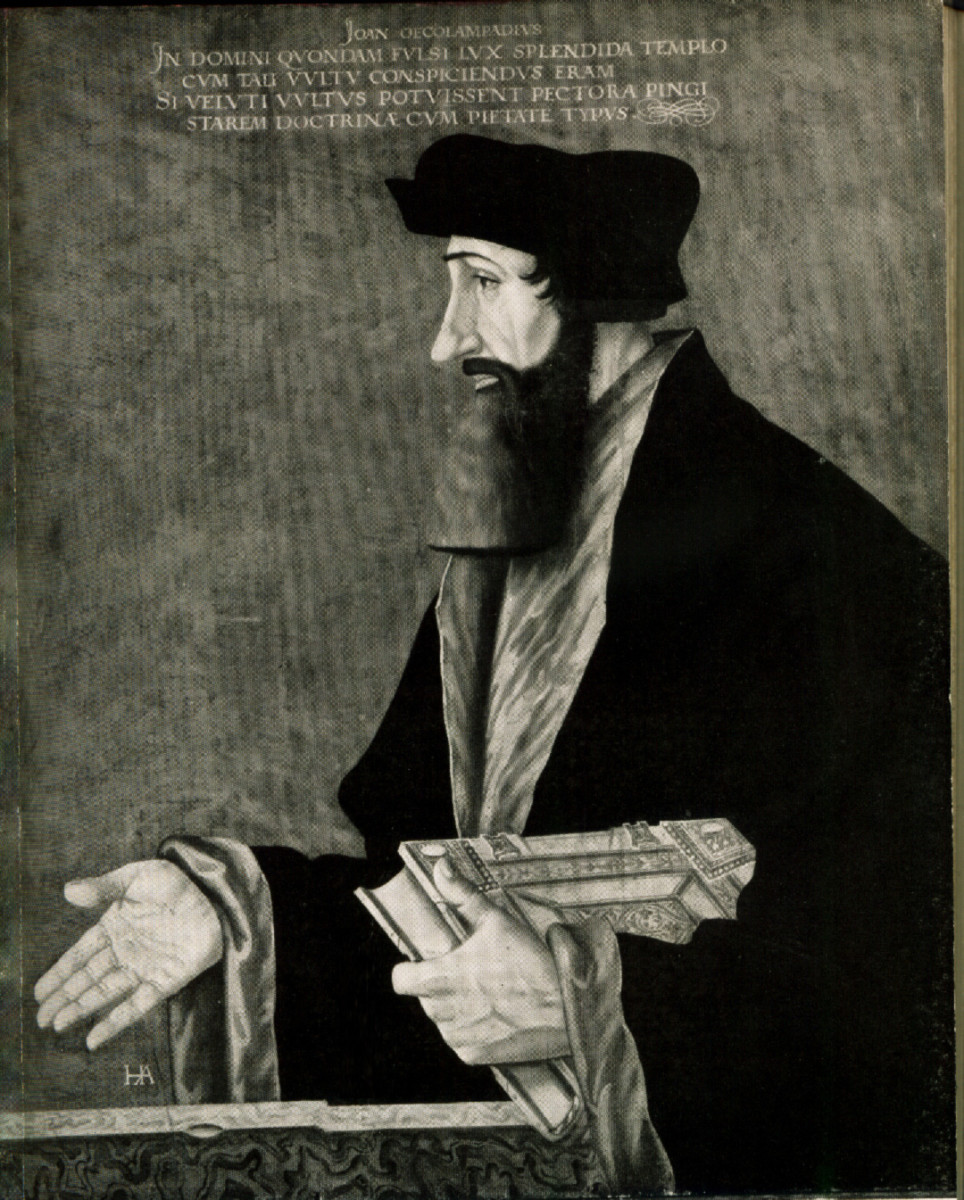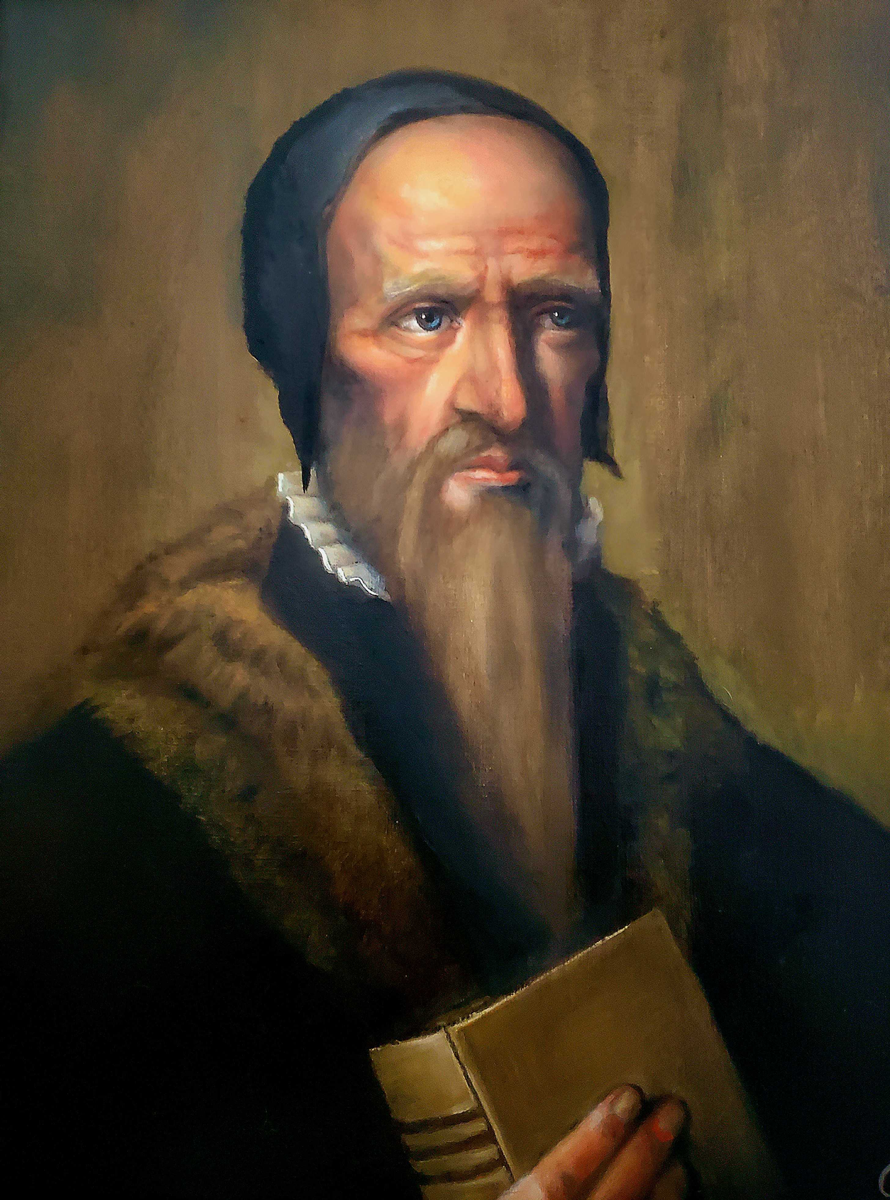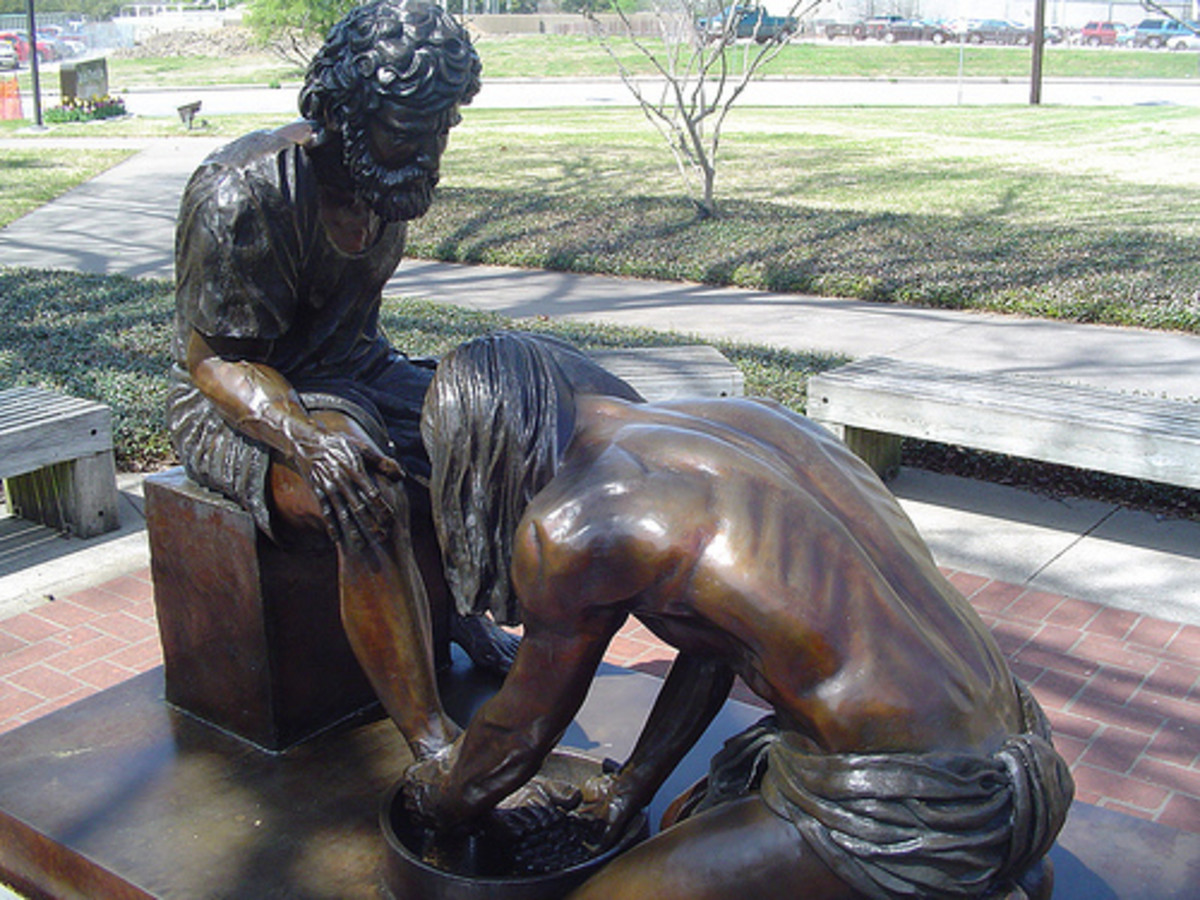500 Years Later, Six Reformation Truths to Build Your Life On
Zurich Minster where Zwingli launched the Swiss Reformation

Reformation and True Faith
In January 1523 the Swiss reformer Ulrich Zwingli faced off against John Fabri, speaking for Rome, at the First Zurich Disputation. The following exchange highlights one of the dividing lines leading to the birth of Protestantism.
Zwingli declared, "We know from the Old and New Testaments of God that our only comforter, redeemer, savior, and mediator with God is Jesus Christ, in whom and through whom alone we can obtain grace, help and salvation, and besides from no other being in heaven or on earth."
Summary: Christ alone is the source of grace, help, and salvation. Zwingli based his statement on the teaching of the Bible alone.
Fabri replied, "It seems to me the dear saints and the Virgin Mary are not to be despised, since there are few who have not felt the intercession of the Virgin and the saints. I do not care what everyone says or believes."
Summary: Mary the mother of Jesus and deceased saints (holy men and women) also play a role in helping people and are a source of grace, help, and salvation. Fabri based his statement the teaching and tradition of the church, apart from the Bible. (Jackson, selected works, 79-80)
The Reformation at dawn in 1517 wasn’t an attempt to break from the Roman Catholic Church but was an effort to reform, cleanse, and renew the church. The goal was to have a faith in Christ without a dependence on ceremonies, images, saints, indulgences, and other church rituals and traditions. The goal was a faith and dependence on Christ alone.
What was true religion? Zwingli said, "...clinging to God, with an unshaken trust in him as the only good, as the only one who has the knowledge and power to relieve our troubles and to turn away all evils or to turn them to his own glory and the benefit of his people, and with filial dependence upon him as a father--this is piety, is religion."(Jackson, Latin Works, III:1)
This article will briefly look at six powerful the truths the reformers pushed for in the Great Reformation which we can build our lives upon today. I've been reading through Timothy George's "Theology of the Reformation" which is the inspiration for this article. Below is a key for the quotes I will use.
George - Timothy George, Theology of the Reformers
Jackson - translated numerous works of Zwingli
WA - translated works of Luther
Lastly, latin was the intellectual language of the time and mass was spoken in latin. Hence the use of latin below. I also think the latin makes these truths easier to remember.
Martin Luther, 1528 portrait by Lucas Cranach
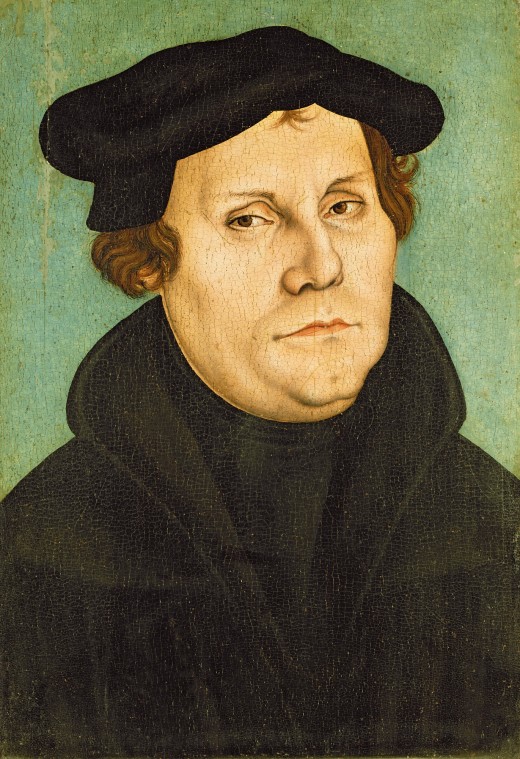
Coram Deo
“Coram Deo” was near and dear to the heart of Luther. “Coram Deo,” latin for “before God, in the presence of God.” Coram Deo to Luther meant that all of life, the sublime and mundane, was lived out in the presence and nearness of the living God. Therefore, every part of our lives, sublime and mundane, is significant and meaningful because we live our lives in the presence of the Father. Coram Deo means there is no area of our lives we can disconnect from a holy God, He is always present. Luther raised the banner of Coram Deo in opposition to both the worldliness of the papacy and the scholasticism of theologians like Aquinas. God is near, not at a distance. God is personal, not abstract, and we live our lives out in His presence.
Before God (Coram Deo) we have nothing and nowhere to hide. Our sins, our weaknesses, our failures, our motives, are all laid bare before a God who sees all and knows us better than we know ourselves. Coram Deo helps us see our sin...and our desperate need for God’s grace and forgiveness. Coram Deo means our only hope is to cast ourselves fully and completely on God’s grace. Because we are conscious of living our lives in the presence of God (Coram Deo) we are more conscious of our need for His grace in every part of our lives.
Coram Deo helps us think more about the words we choose, the thoughts we dwell on, and the actions we take. Coram Deo drives us to ask God for grace and help, because He is near. Coram Deo teaches us the nearness of God and helps us to walk with Him and rely on Him. Coram Deo gives us comfort and hope God is always near and has His eye upon us.
Ulrich Zwingli, portrait by Hans Asper
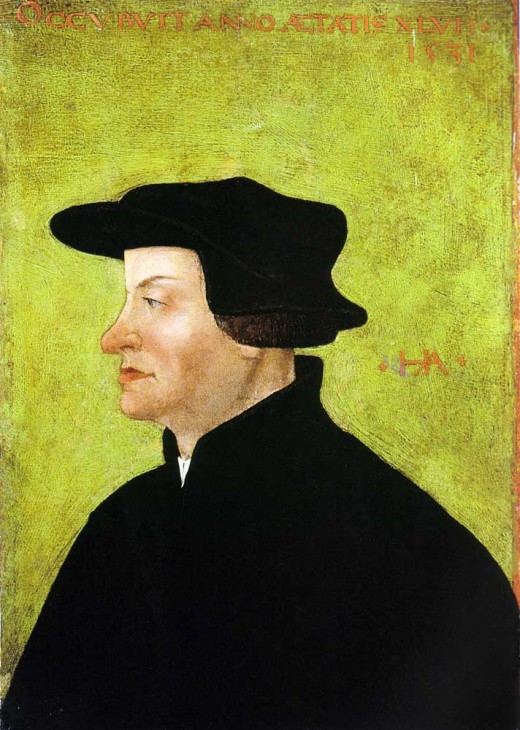
Sola Scriptura
On New Year’s Day, 1519 Zwingli stepped into the pulpit and began preaching verse by verse through a Gospel. He abandoned the traditional lectionary of the church and began to preach a chapter by chapter exposition of the Scripture. This was a radical and original step for a priest to abandon the church lectionary. “He not only was preaching from the Bible but also was allowing the Bible to speak directly to him and his congregation. Gradually the great cathedral began to fill with those eager to hear the Word of God. Zwingli confessed surprise...the proclamation of Holy Scripture was the single most important precipitant of reform in the city of Zurich.” (George, p.131) Sola Scriptura, Scripture alone, had begun.
Sola Scriptura means the Bible alone is the ultimate authority, rule, guide for the Christian, not the pope, priest, pastor, tradition, reason, or feeling. Scripture alone is necessary for the man or woman who seeks to know and follow God. In a sermon in 1522 Zwingli said, “When I was younger, I gave myself overmuch to human teaching, like others of my day, and when about seven or eight years ago I undertook to devote myself entirely to the Scriptures I was always prevented by philosophy and theology. But eventually I came to the point where led by the Word and Spirit of God I saw the need to set aside all these things and to learn the doctrine of God direct from his own Word. Then I began to ask God for light and the Scriptures became far clearer to me.”(Jackson, Latin Works, II:228)
This principle of Sola Scriptura worked itself out in the translation of the Bible into the various languages of Europe so people could read and study the Bible for themselves. In our time we have an overwhelming number of translations to choose from unlike 500 years ago. I believe the practice of Sola Scriptura today means you get a translation of the Bible that goes word for word from the original texts such as the New American Standard, (NAS) or English Standard Version, (ESV) and perhaps use a paraphrase Bible such as The Message or New Living Translation (NLT) as a secondary source of study.
The principle of Sola Scriptura also changed Christian worship. The new Protestant worship centered on the pulpit, with an open Bible, with the preacher facing the people. This in contrast with a priest at the altar, his back to the audience, performing a semi-secret ritual no one understands. Luther said of preaching, “Likewise, the hearers should also say: I do not believe in my pastor, but he tells me of another Lord whose name is Christ; him he shows me.” (WA 51:191) And as to the hoped for outcome of preaching Luther declared, “To hear mass means nothing else but to hear God’s Word and thereby serve God.” (WA 36:354)
In July 1525 in Zurich, Zwingli started what he called, “The Prophecy,” for pastors and students to gather at church for an hour starting at 7am each day except Friday and Sunday and engage in intense exegesis and interpretation of a Scripture passage. "The Property" was Zwingli's own Zurich seminary class. Zwingli's opening prayer is perfect to close this section on Sola Scriptura and a good prayer for us to pray when we open the Bible.
“Almighty, eternal and merciful God, whose Word is a lamp unto our feet and a light unto our path, open and illuminate our minds, that we may purely and perfectly understand Thy Word and that our lives may be conformed to what we have rightly understood, that in nothing we may be displeasing unto thy majesty, through Jesus Christ our Lord. Amen.” (Zwingliana, translated from Fritz Schmidt-Clausing)
The twin spires of Zurich Minster or Grossmuenster

Sola Gratia
8 For by grace you have been saved through faith. And this is not your own doing; it is the gift of God, 9 not a result of works, so that no one may boast. Ephesians 2:8-9
Sola Gratia. Grace alone. The salvation and gift of eternal life is due solely to the grace of God, apart from any human merit or good works. A person is saved by grace alone. Salvation cannot be earned, maintained, or preserved by works or human merit but by grace alone.
Sola Gratia says God is the first moving cause in our salvation. No human heart will or would choose God on it’s own initiative.
Rest for our souls is found only in casting ourselves on His grace. When we focus on our efforts, our successes and failures, we lose sight of God. But living by Sola Gratia keeps our focus on Him, and His magnificent grace, regardless of our victories or failures. Sola Gratia is our ever renewable hope. Sola Gratia was a return to Augustine who wrote, “Unto thy grace and mercy do I ascribe, for thou hast dissolved my sins as it were ice.” (Augustine, Confessions, II, 7) Sola Gratia frees us from obsessing over ourselves and allows us to find rest and peace in His grace.
Sola Fide
Have you ever had doubts about whether or not God has forgiven you or if you really are a Christian?
A woman named Barbara Lisskirchen came to Luther once. She was struggling with the question of whether she was truly saved or not. Luther said those who struggled with such a question actually showed they were saved, for non-Christians don’t struggle with or think such things. Luther told her, “When such thoughts assail you, you should learn to ask yourself, ‘...in which Commandment is it written that I should think about and deal with this matter? ...learn to say, ‘Be gone, wretched devil! You are trying to make me worry about myself. But God declares everywhere that I should let him care for me. The highest of all God’s commands is this, that we hold up before our eyes the image of his dear Son, our Lord Jesus Christ...Contemplate Christ given for us. Then, God willing, you will feel better.” (Luther, Letters of spiritual counsel, 116)
Sola Fide. Faith alone. The gift of God’s grace, eternal life, is received by faith, faith alone, and not by any good works a person may do.
Romans 3:28, “For we hold that one is justified by faith apart from works of the law.”
In Medieval times faith(fide) was considered a great virtue as in faith, hope, or love. But the reformers defined faith as less a virtue and more a personal trust and reliance in the person of Jesus Christ for salvation. Luther was especially adamant that a person not put any trust in works, knowledge, or personal virtue for salvation but to trust in Christ alone by faith. By faith the righteousness of Christ is applied to us and we are saved. Faith is confidence that Jesus has got me and I need not fear.
Luther posting his 95 theses in Wittenberg October 31, 1517 start of the Reformation
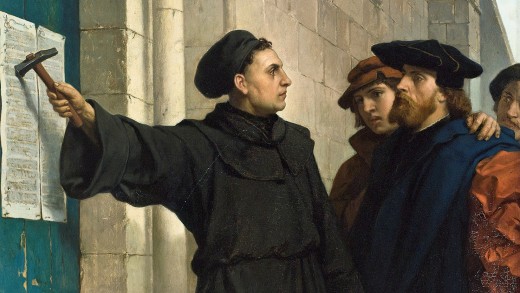
The Priesthood of All Believers
Martin Luther proclaimed the 'priesthood of all believers.' But what did Luther mean? Did he mean everyone is equally a priest and pastor to everybody else? Every Christian is free to be their own pastor and everyone’s beliefs are only subject to their own private interpretation and judgment? Did Luther teach the abolition of vocational ministry?
None of the above is correct. Timothy George summarizes Luther’s teaching on the priesthood of all believers; “Every Christian is someone else’s priest, and we are all priests to one another.” (p.96) Thus, Luther taught that every Christian has a gift and calling to minister to another Christian as a ‘priest.’ The ‘priesthood of believers’ envisioned a family of believers serving and ministering to one another as priests. Every Christian has some way to be a blessing and strength to another believer. Luther based his teaching on two texts.
But you are a chosen race, a royal priesthood, a holy nation, a people for his own possession, that you may proclaim the excellencies of him who called you out of darkness into his marvelous light. 1 Peter 2:9
...and made us a kingdom, priests to his God and Father, to him be glory and dominion forever and ever. Amen. Revelation 1:6
Luther wrote that because of Christ’s saving us through his death and resurrection, “We are priests as he is priest, sons as He is Son, kings as he is King.” (WA 12:179) Luther taught, “The fact that we are all priests and kings means that each of us Christians may go before God and intercede for the other. If I notice that you have no faith or a weak faith I can ask God to give you a strong faith.” (WA, 10/3:308-9) Luther encouraged his hearers to put aside praying for the dead and focus on your brothers and sisters around you, the living are the ones in need of your prayers and help.
The priesthood of all believers is a group of believers who bear each other’s burdens, help each other, serve each other, encourage, comfort and pray for each other according to Luther.
Luther had no intention of abolishing a vocational minister. While every believer was called to speak the Gospel not every believer was called or gifted to be a teacher and preacher. It was up to the people to call and appoint the pastor to proclaim God’s Word on a regular basis.
Christus Pro Me
Christus Pro Me, Christ for me. Martin Luther said, “Read with great emphasis these words, “me,” “for me,” and accustom yourself to accept and to apply to yourself this “me” with certain faith. The man who does not believe them is not a Christian.” (WA 40/1:299) Christ for me. The reformers believed faith must be personal not abstract, specific not anonymous. Christ was given for me! A genuine warm living faith is to know in the depths of your being you have reached for God, believed, and he has forgiven you, received you, and is for you. “The heart of Luther’s theology was that in Jesus Christ God has given himself, utterly and without reserve, for us.” (George, p.60) God has proven his love for us, in Christ he reached down to us, He made the way, He opened the door, Christ is for us.
With the individualism of our age combined with the modern emphasis on God’s love (as opposed to his wrath) in Christianity today “Christ for me” may not seem so revolutionary. But a pre-Reformation God was terrible, mysterious, remote, and vengeful. A good Medieval Christian went to mass, listened to a service in a language they didn’t understand, and observed strange rites performed by a priest. Why wouldn’t God seem far away, terrifying, and disinterested to Medieval Christians? But a Medieval Christian did understand hell, and purgatory, and also understood buying indulgences (paying money) from the church was necessary to relieve or free dead relatives from their sufferings in the afterlife. To a Medieval Christian a stop in purgatory would be an optimistic outlook on the afterlife. Thus “Christus Pro Me” was a bright sun breaking through dark clouds. Christ has already suffered and paid the penalty, Christ is for us. Luther urges us to accept and apply Christus Pro Me to ourselves with assurance and conviction, this is what it means to be a Christian.
The good news is God really is for us, not against us. We are not subject to fear, dread, uncertainty, punishment, an axe hanging over our heads, God is not the judge with the gavel upraised and furious face...but the sacrificial shepherd God. Christus Pro Me is a powerful truth in any age. Christ in his mercy, love, and grace, has suffered and paid the penalty of our sins, we are forgiven. Christus Pro Me.
A very readable book on reformers and what they believed
Reformation Truth to build your life on
1. Coram Deo / before God, in the presence of God. God is near and not far away. We live our lives out in the presence and nearness of the Father.
2. Sola Scriptura / Scripture alone. The Bible alone is our ultimate guide and authority on how to live life and walk with God.
3. Sola Gratia / Grace alone. We owe everything we are and have to God's grace. We can rest because we are saved by grace and not by good works.
4. Sola Fide / Faith alone. We can have confidence, a personal trust in God. God calls us to have faith in Him and He will never fail us.
5. The Priesthood of all believers. Every Christian has a privilege and ability to be a priest to some other believer. As priests to each other we bear each other's burdens, pray for each other, serve each other, encourage each other, etc.
6. Christus Pro Me / Christ for me. Faith must be personal. We must believe that Christ was given, broken, died, raised, for us. He was given for you!
© 2018 David Winters


